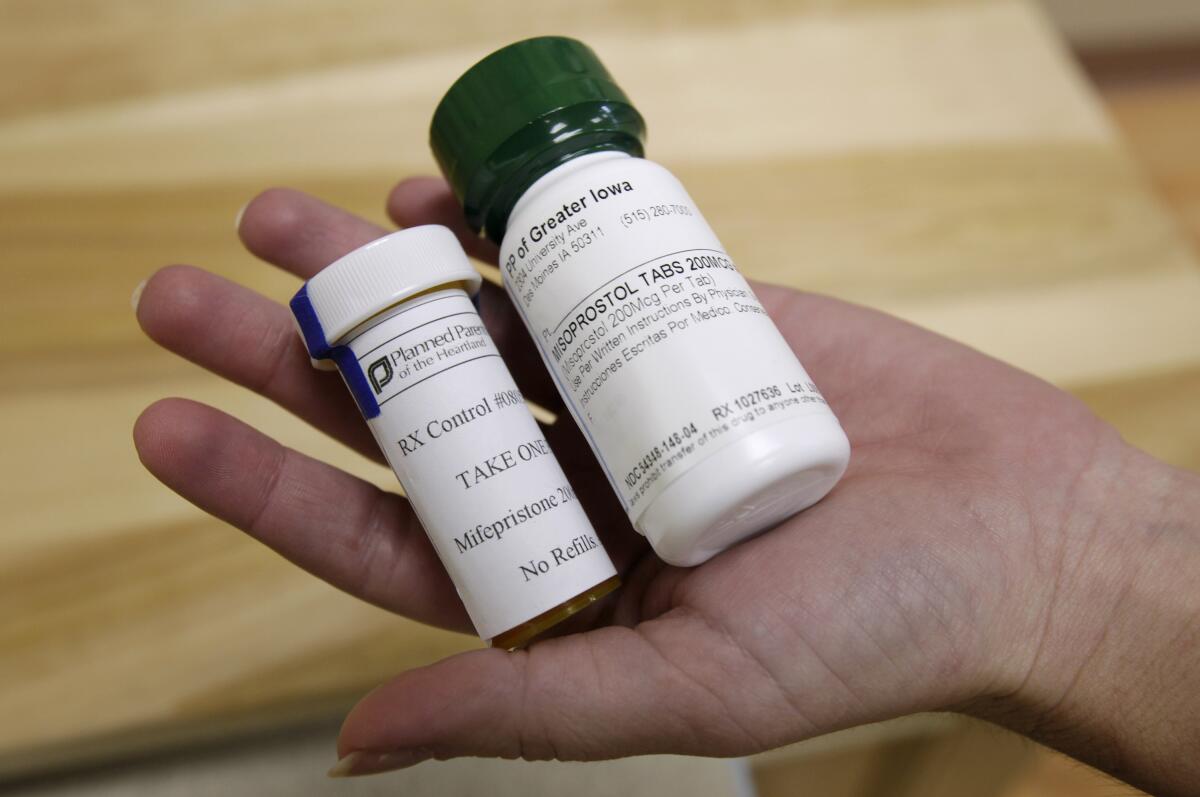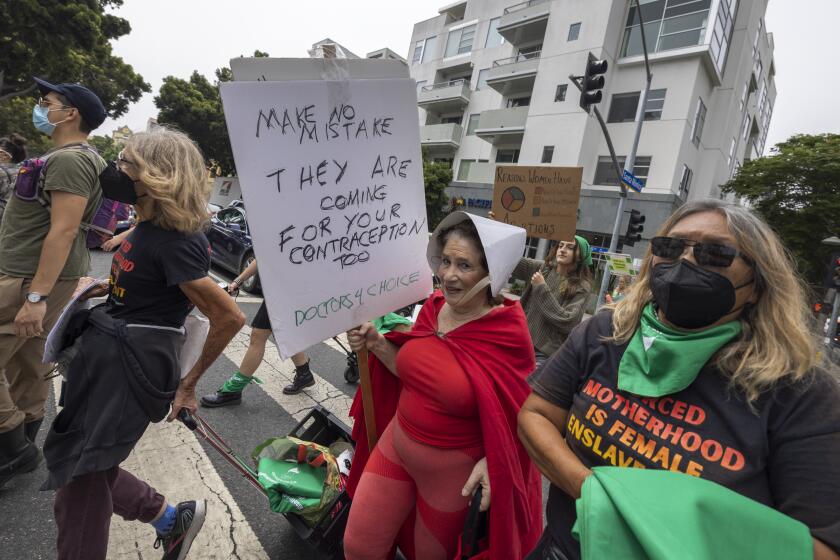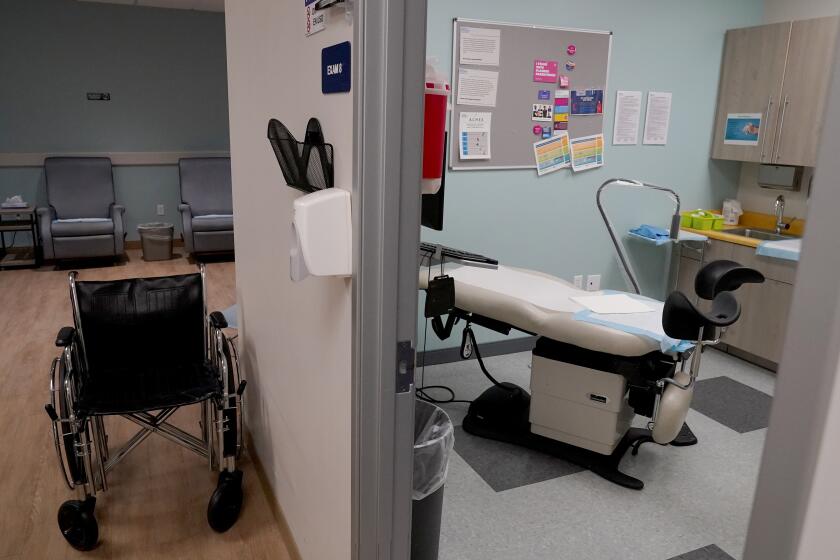Editorial: Supreme Court keeps medication abortion safe — for now

The Supreme Court did the right thing Thursday by unanimously ruling against a challenge to the safety of mifepristone, the first of two drugs used in medication abortions.
Of course, this wasn’t the court protecting access to abortion, which it gutted by overturning Roe vs. Wade two years ago and taking away the constitutional right to abortion. Nor did it rule on the safety of mifepristone, which has been available for more than 20 years.
It was the court tossing a ridiculous case on the grounds that the plaintiffs, antiabortion doctors, had no standing, or personal stake, to challenge the medication’s safety. The Alliance for Hippocratic Medicine et al sued the Food and Drug Administration contending that the authorization of mifepristone should be revoked because it hadn’t been studied sufficiently, though it has been safely in use for more than two decades.
Most Republicans in the Senate voted to block a bill that would protect access to contraception. Why? Isn’t this the party that wants to avoid abortions?
Still, anyone who cares about the right to control their body and their destiny should feel relief and satisfaction. Had the justices ruled for the antiabortion groups it would have restricted access to the most common and a very safe form of abortion across the country. Even residents of progressive states such as California would have had less access to medication abortion. So this is a win.
But any sense of relief must be tempered by this reality check: Antiabortion forces are relentlessly scheming to ban abortion altogether. Precisely because medication abortion is so commonly used, it is a target for abortion opponents and will continue to be.
Zombie laws, in the hands of antiabortion zealots and the ultraconservative Supreme Court, are coming for more than abortion rights.
It’s exasperating that the case got as far as it did, making its way up the judicial ladder from the courtroom of the antiabortion Amarillo-based U.S. District Judge Matthew J. Kacsmaryk to the 5th Circuit, which affirmed part of his decision, and eventually to the Supreme Court. This case was so obviously flawed. It wrongly second-guessed the FDA, and the plaintiffs had no business filing it.
In the opinion, Justice Brett M. Kavanaugh eviscerated the group’s claim that it could sue the FDA because at some point they might suffer personal or economic injury from medication abortion. Kavanaugh wrote that the group had not identified any doctor who had been forced to perform an abortion against their conscience. Nor did they prove that they would suffer economic injuries because they might have to divert time from other patients to treat those with complications from mifepristone.
The only thing the plaintiffs proved in this case is that they have moral and ideological objections to abortion. Kavanaugh offered this suggestion: “Citizens and doctors who object to what the law allows others to do may always take their concerns to the Executive and Legislative Branches.”
Voters in our state may repeal the ban, so I’m anticipating the November election with hope and fear in equal measure.
That note is a sober reminder that the fight for abortion access is not over. There’s no question that Thursday’s ruling was a victory for reproductive rights. But this is a long battle. Abortion medication will end up in court again. Other plaintiffs will argue they have standing to fight to curtail abortion procedures.
The only way to stop this continual assault on our rights is through the ballot box. Every voter should remember that abortion access needs to be protected in state constitutions and in federal law so the decision doesn’t fall to nine justices who don’t represent the 336 million Americans whose lives will be affected by their decisions. In November, and in every election after, voters must send a message to elected officials and political candidates that they must protect abortion rights if they want to be in office.
More to Read
A cure for the common opinion
Get thought-provoking perspectives with our weekly newsletter.
You may occasionally receive promotional content from the Los Angeles Times.













